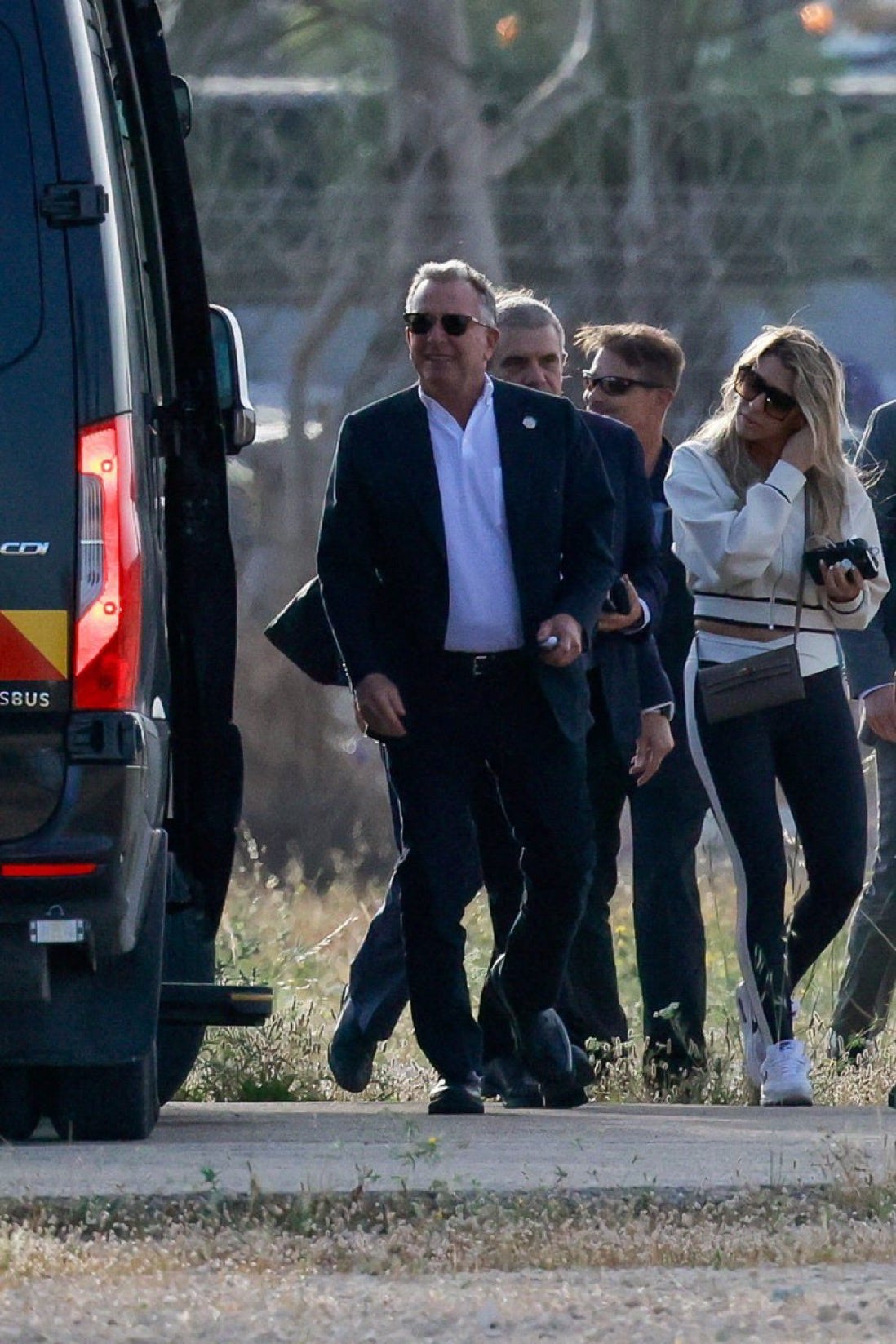Trump told Bibi “he wants to see a deal with Iran,” White House
“The President has made it very clear… that he wants to see a deal with Iran struck, if one can be struck ….And he's made that clear to the Prime Minister,” White House spokesperson Karoline Leavitt.
President Trump told Israeli Prime Minister Benjamin Netanyahu in a call today that he wants to reach a deal with Iran, if possible, and the talks are moving “in the right direction,” the White House said, ahead of a fifth round of US Iran talks set to take place in Rome, Italy on Friday.
The subtext of the White House readout of the call was that Trump was giving Israel a “red light” for any military action it reportedly might want to pursue against Iran, at least for now.
Trump and Netanyahu “did talk about a potential deal with Iran, which the President believes is moving along in the right direction,” White House spokesperson Karoline Leavitt told journalists at the White House press briefing today (May 22).
“This deal with Iran could end in two ways,” Leavitt said. “It could end in a very positive diplomatic solution, or it could end in a very negative situation for Iran. So that's why these talks are taking place later this week.”
“The President has made it very clear to not just Prime Minister Netanyahu, but also the world that he wants to see a deal with Iran struck, if one can be struck,” Leavitt continued. “He does not want to have to make the latter option, the more severe and negative option. He wants to see a deal. The president is a deal maker, and he believes strongly in diplomacy, and he's made that clear to the Prime Minister.”
Trump Senior Advisor and Special Envoy Steve Witkoff and State Department Policy Planning Director Michael Anton will travel to Rome on Friday for a fifth round of talks with Iran, a source familiar said today, adding: “Discussions are expected to be both direct and indirect, as in previous rounds.”
Iran may give a counter-proposal at the talks in Rome on Friday, which will be mediated, as the previous four rounds, by the Omani foreign ministry.
Ahead of the Rome talks, Iran has indicated it will not accept U.S. demands for a deal that does not permit it to continue low level enrichment for civilian energy uses. U.S. officials have given shifting and contradictory statements if that is a deal breaker.
Iranian’s chief negotiator, foreign minister Abbas Araghchi, suggested today it is not out of the ordinary for the U.S. to go into negotiations with maximal demands, some of which it may be prepared to eventually compromise.
“It’s pretty normal to see excessive demands in the initial rounds of the negotiations…and the Americans are renowned for this,” Iranian Foreign Minister Abbas Araghchi said today in an Iranian television interview.
He reiterated, as he has previously, that Iran does not seek to acquire nuclear weapons. “We have shown in practice that we do not seek any nuclear weapons,” he said. “Nuclear weapons have no place in our doctrine.”
“I think [the Iranians] still recognize that there is a likelihood that Trump is using his usual Trump strategy, which is to throw out rather excessive maximalist starting positions and then negotiate himself to a more reasonable place,” Trita Paris, of the Quincy Institute, said. “And as long as there is some hope that that is the strategy, then it's worth engaging and giving a counter proposal.”
“They're going to throw out some sort of a counter proposal, and show what they're willing to do,” Parsi said.
Secretary of State (and national security advisor) Marco Rubio laid out in testimony before a Senate panel this week why the US would seek Iran to have a civilian nuclear program without domestic enrichment, and why the US thinks Iran wants to retain enrichment. But, as I heard him, he did not totally close the door to a deal that permits Iranian enrichment, if President Trump decides he is willing to accept it.
“It is our view that they want enrichment as a deterrent,” Rubio told the Senate Foreign Relations Committee Tuesday. “And that is the crux of the situation we're facing right now.”
“Our hope is that we can encourage them, to show them a path towards prosperity and peace that allows them to develop their economy, that allows them…to have a civil nuclear energy program like other countries around the world have without enrichment,” Rubio said. “The President has been very clear, and I won't elaborate any further, that they are never going to get a nuclear weapon. … But he much prefers…. if we could reach an arrangement where they agree to this off ramp.”
Trump in the call with the Israeli leader also expressed sorrow for the terrible murder of two young Israel embassy staff members as they were leaving a diplomatic event at a Jewish museum in downtown Washington on Wednesday night, the White House said.
Sarah Milgrim, 26, from Prairie Village, Kansas, was an American working at the embassy to organize missions to Israel; her fiancé Yaron Lischinsky, 30, was a German-born Israeli diplomat and gifted linguist working as a research assistant in the embassy’s political department. They had been planning to travel to Israel next week to meet his family.
Elias Rodriguez, 30, of Chicago, Illinois, was charged today with the murder of foreign officials, causing death through the use of a firearm, and two counts of first-degree murder. Rodriguez “spontaneously stated on the scene to the [Metropolitan Police Department], ‘I did it for Palestine, I did it for Gaza,’” the criminal complaint states. “As MPD officers were escorting Rodriguez from the Museum, he shouted, ‘Free Palestine.’”
(Photo: Trump envoy Steve Witkoff arrived in southern Israel on May 13, 2025, to retrieve the last living Israeli American hostage, Edan Alexander, held by Hamas.)
**



